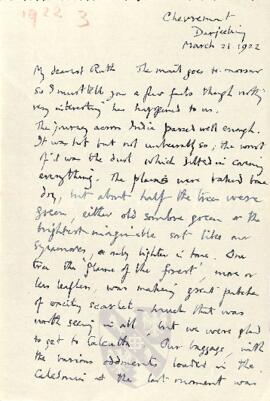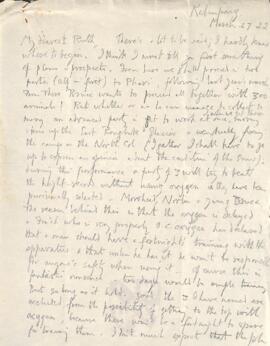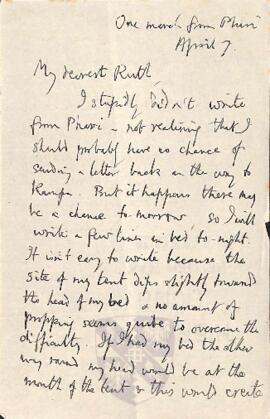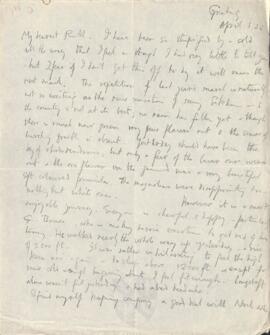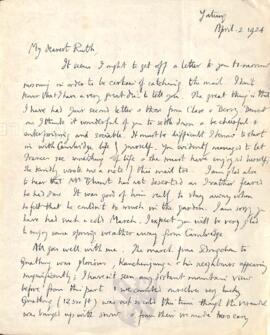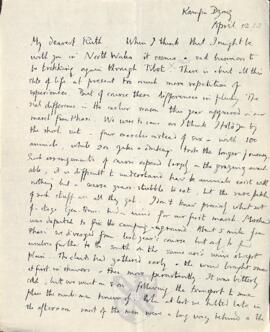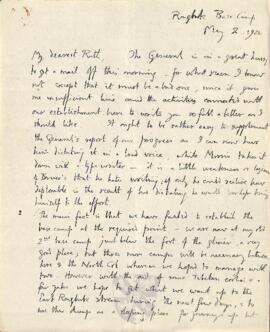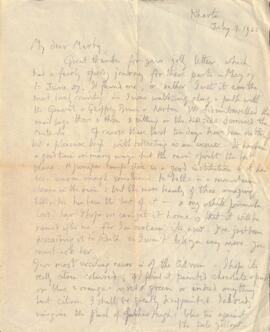Letter to Ruth Mallory, from Chevremont Darjeeling.
Brief Summary
Journey across India from Bombay to Calcutta and the Darjeeling. Norton in hospital. Plans to travel onward. Finch and Crawford to stay behind and wait for delayed oxygen cylinders. Looking forward to seeing flowers in Sikkim.
Detailed Summary
Journey across India passed well enough. Describes the heat, dust, dry plains, and that about half the trees were green, either a sombre green or the brightest imaginable sort. There was much that was worth seeing but they were glad to get to Calcutta.
Their baggage weighed 2 ¼ tons plus a lot of personnel in the train and they paid over 600 rupees to Calcutta and 150 more for handling at Bombay. They were met in Calcutta by the A + N Stores agent who did everything for them. The stores and railway fares cost about £200 from Bombay to Darjeeling.
Norton was in hospital in Calcutta with bad piles after riding but it was not necessary to operate. Norton planned to go with them to join Strutt but he hoped that Norton would be persuaded to join them later.
They next travelled in a rail motor which was a much cleaner ride than the train. They got to near Darjeeling quicker than expected and met Bruce coming up the road in a car who made great cheer at seeing them. The country looked very different now to how he had left it being much browner due to the weather being particularly dry which he thought was a good thing for them.
Immense quantities of stores were on their way to or already at Phari. It was possible to save a march to Kalimpong, which was the second stage on the journey the year before, as they were going by a special train, a journey of 5 to 6 hrs to Kalimpong which they could do quite easily in a day.
After Kalimpong they planned to split into two parties. He would be in the first party going to Phari. Then an advance party of about 8 of them (himself, G. Bruce, Strutt, Longstaff, Wakefield, and Noel) would go onwards taking a limited amount of stores with them while the rest would follow gradually behind. Finch was staying with Crawford to bring the oxygen when it arrived [the cylinders hadn't yet reached Calcutta].
He was looking forward to seeing the earlier flowers in Sikkim [he was here about a month earlier in the year then he was in 1921] and details magnolias in full bloom. He compares the expedition leaders Howard-Bury (1921) and the current leader General Bruce and says he read the proofs of Howard-Bury’s chapters coming up from Calcutta which were worse than he had expected. Morshead would also be joining the expedition which he was very glad about [Mallory and Morshead were the only two returning from the 1921 Everest Reconnaissance Expedition].
Realises Ruth may be in Wales and sends his best wishes to the party.
